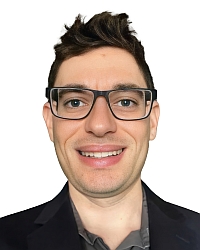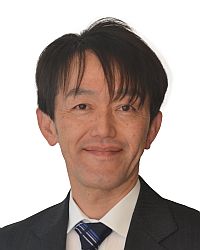Machine Learning
Data-driven approaches to design intelligent algorithms.
MERL has a long history of research activity in machine learning, including the development of various boosting algorithms and contributing to the theory and practice of highly scalable collaborative filtering. Our recent work has focused on deep learning and reinforcement learning, with application to a wide range of applications including automotive, robotics, factory automation, transportation, as well as building and home systems.
Quick Links
-
Researchers

Toshiaki
Koike-Akino

Ye
Wang

Jonathan
Le Roux

Ankush
Chakrabarty

Anoop
Cherian

Gordon
Wichern

Tim K.
Marks

Michael J.
Jones

Philip V.
Orlik

Kieran
Parsons

Stefano
Di Cairano

Christopher R.
Laughman

Daniel N.
Nikovski

Pu
(Perry)
Wang
Devesh K.
Jha

Diego
Romeres

Chiori
Hori

Suhas
Lohit

Bingnan
Wang

Jing
Liu

Yebin
Wang

Hassan
Mansour

Petros T.
Boufounos

Matthew
Brand

François
Germain

Moitreya
Chatterjee

Arvind
Raghunathan

Kuan-Chuan
Peng

Abraham P.
Vinod

Vedang M.
Deshpande

Jianlin
Guo

Siddarth
Jain

Scott A.
Bortoff

Pedro
Miraldo

Hongtao
Qiao

William S.
Yerazunis

Radu
Corcodel

Chungwei
Lin

Saviz
Mowlavi

Dehong
Liu

Yoshiki
Masuyama

Hongbo
Sun

Wataru
Tsujita

Joshua
Rapp

Ryo
Aihara

Yanting
Ma

Anthony
Vetro

Jinyun
Zhang

Wael H.
Ali

Purnanand
Elango

Abraham
Goldsmith

Alexander
Schperberg

Avishai
Weiss

Kenji
Inomata
-
Awards
-
AWARD MERL Wins Awards at NeurIPS LLM Privacy Challenge Date: December 15, 2024
Awarded to: Jing Liu, Ye Wang, Toshiaki Koike-Akino, Tsunato Nakai, Kento Oonishi, Takuya Higashi
MERL Contacts: Toshiaki Koike-Akino; Jing Liu; Ye Wang
Research Areas: Artificial Intelligence, Machine Learning, Information SecurityBrief- The Mitsubishi Electric Privacy Enhancing Technologies (MEL-PETs) team, consisting of a collaboration of MERL and Mitsubishi Electric researchers, won awards at the NeurIPS 2024 Large Language Model (LLM) Privacy Challenge. In the Blue Team track of the challenge, we won the 3rd Place Award, and in the Red Team track, we won the Special Award for Practical Attack.
-
AWARD University of Padua and MERL team wins the AI Olympics with RealAIGym competition at IROS24 Date: October 17, 2024
Awarded to: Niccolò Turcato, Alberto Dalla Libera, Giulio Giacomuzzo, Ruggero Carli, Diego Romeres
MERL Contact: Diego Romeres
Research Areas: Artificial Intelligence, Dynamical Systems, Machine Learning, RoboticsBrief- The team composed of the control group at the University of Padua and MERL's Optimization and Robotic team ranked 1st out of the 4 finalist teams that arrived to the 2nd AI Olympics with RealAIGym competition at IROS 24, which focused on control of under-actuated robots. The team was composed by Niccolò Turcato, Alberto Dalla Libera, Giulio Giacomuzzo, Ruggero Carli and Diego Romeres. The competition was organized by the German Research Center for Artificial Intelligence (DFKI), Technical University of Darmstadt and Chalmers University of Technology.
The competition and award ceremony was hosted by IEEE International Conference on Intelligent Robots and Systems (IROS) on October 17, 2024 in Abu Dhabi, UAE. Diego Romeres presented the team's method, based on a model-based reinforcement learning algorithm called MC-PILCO.
- The team composed of the control group at the University of Padua and MERL's Optimization and Robotic team ranked 1st out of the 4 finalist teams that arrived to the 2nd AI Olympics with RealAIGym competition at IROS 24, which focused on control of under-actuated robots. The team was composed by Niccolò Turcato, Alberto Dalla Libera, Giulio Giacomuzzo, Ruggero Carli and Diego Romeres. The competition was organized by the German Research Center for Artificial Intelligence (DFKI), Technical University of Darmstadt and Chalmers University of Technology.
-
AWARD MERL team wins the Listener Acoustic Personalisation (LAP) 2024 Challenge Date: August 29, 2024
Awarded to: Yoshiki Masuyama, Gordon Wichern, Francois G. Germain, Christopher Ick, and Jonathan Le Roux
MERL Contacts: François Germain; Jonathan Le Roux; Gordon Wichern; Yoshiki Masuyama
Research Areas: Artificial Intelligence, Machine Learning, Speech & AudioBrief- MERL's Speech & Audio team ranked 1st out of 7 teams in Task 2 of the 1st SONICOM Listener Acoustic Personalisation (LAP) Challenge, which focused on "Spatial upsampling for obtaining a high-spatial-resolution HRTF from a very low number of directions". The team was led by Yoshiki Masuyama, and also included Gordon Wichern, Francois Germain, MERL intern Christopher Ick, and Jonathan Le Roux.
The LAP Challenge workshop and award ceremony was hosted by the 32nd European Signal Processing Conference (EUSIPCO 24) on August 29, 2024 in Lyon, France. Yoshiki Masuyama presented the team's method, "Retrieval-Augmented Neural Field for HRTF Upsampling and Personalization", and received the award from Prof. Michele Geronazzo (University of Padova, IT, and Imperial College London, UK), Chair of the Challenge's Organizing Committee.
The LAP challenge aims to explore challenges in the field of personalized spatial audio, with the first edition focusing on the spatial upsampling and interpolation of head-related transfer functions (HRTFs). HRTFs with dense spatial grids are required for immersive audio experiences, but their recording is time-consuming. Although HRTF spatial upsampling has recently shown remarkable progress with approaches involving neural fields, HRTF estimation accuracy remains limited when upsampling from only a few measured directions, e.g., 3 or 5 measurements. The MERL team tackled this problem by proposing a retrieval-augmented neural field (RANF). RANF retrieves a subject whose HRTFs are close to those of the target subject at the measured directions from a library of subjects. The HRTF of the retrieved subject at the target direction is fed into the neural field in addition to the desired sound source direction. The team also developed a neural network architecture that can handle an arbitrary number of retrieved subjects, inspired by a multi-channel processing technique called transform-average-concatenate.
- MERL's Speech & Audio team ranked 1st out of 7 teams in Task 2 of the 1st SONICOM Listener Acoustic Personalisation (LAP) Challenge, which focused on "Spatial upsampling for obtaining a high-spatial-resolution HRTF from a very low number of directions". The team was led by Yoshiki Masuyama, and also included Gordon Wichern, Francois Germain, MERL intern Christopher Ick, and Jonathan Le Roux.
See All Awards for Machine Learning -
-
News & Events
-
NEWS Suhas Lohit presents invited talk at Boston Symmetry Day 2025 Date: March 31, 2025
Where: Northeastern University, Boston, MA
MERL Contact: Suhas Lohit
Research Areas: Artificial Intelligence, Computer Vision, Machine LearningBrief- MERL researcher Suhas Lohit was an invited speaker at Boston Symmetry Day, held at Northeastern University. Boston Symmetry Day, an annual workshop organized by researchers at MIT and Northeastern, brought together attendees interested in symmetry-informed machine learning and its applications. Suhas' talk, titled “Efficiency for Equivariance, and Efficiency through Equivariance” discussed recent MERL works that show how to build general and efficient equivariant neural networks, and how equivariance can be utilized in self-supervised learning to yield improved 3D object detection. The abstract and slides can be found in the link below.
-
EVENT MERL Contributes to ICASSP 2025 Date: Sunday, April 6, 2025 - Friday, April 11, 2025
Location: Hyderabad, India
MERL Contacts: Wael H. Ali; Petros T. Boufounos; Radu Corcodel; François Germain; Chiori Hori; Siddarth Jain; Devesh K. Jha; Toshiaki Koike-Akino; Jonathan Le Roux; Yanting Ma; Hassan Mansour; Yoshiki Masuyama; Joshua Rapp; Diego Romeres; Anthony Vetro; Pu (Perry) Wang; Gordon Wichern
Research Areas: Artificial Intelligence, Communications, Computational Sensing, Electronic and Photonic Devices, Machine Learning, Robotics, Signal Processing, Speech & AudioBrief- MERL has made numerous contributions to both the organization and technical program of ICASSP 2025, which is being held in Hyderabad, India from April 6-11, 2025.
Sponsorship
MERL is proud to be a Silver Patron of the conference and will participate in the student job fair on Thursday, April 10. Please join this session to learn more about employment opportunities at MERL, including openings for research scientists, post-docs, and interns.
MERL is pleased to be the sponsor of two IEEE Awards that will be presented at the conference. We congratulate Prof. Björn Erik Ottersten, the recipient of the 2025 IEEE Fourier Award for Signal Processing, and Prof. Shrikanth Narayanan, the recipient of the 2025 IEEE James L. Flanagan Speech and Audio Processing Award. Both awards will be presented in-person at ICASSP by Anthony Vetro, MERL President & CEO.
Technical Program
MERL is presenting 15 papers in the main conference on a wide range of topics including source separation, sound event detection, sound anomaly detection, speaker diarization, music generation, robot action generation from video, indoor airflow imaging, WiFi sensing, Doppler single-photon Lidar, optical coherence tomography, and radar imaging. Another paper on spatial audio will be presented at the Generative Data Augmentation for Real-World Signal Processing Applications (GenDA) Satellite Workshop.
MERL Researchers Petros Boufounos and Hassan Mansour will present a Tutorial on “Computational Methods in Radar Imaging” in the afternoon of Monday, April 7.
Petros Boufounos will also be giving an industry talk on Thursday April 10 at 12pm, on “A Physics-Informed Approach to Sensing".
About ICASSP
ICASSP is the flagship conference of the IEEE Signal Processing Society, and the world's largest and most comprehensive technical conference focused on the research advances and latest technological development in signal and information processing. The event has been attracting more than 4000 participants each year.
- MERL has made numerous contributions to both the organization and technical program of ICASSP 2025, which is being held in Hyderabad, India from April 6-11, 2025.
See All News & Events for Machine Learning -
-
Research Highlights
-
PS-NeuS: A Probability-guided Sampler for Neural Implicit Surface Rendering -
Quantum AI Technology -
TI2V-Zero: Zero-Shot Image Conditioning for Text-to-Video Diffusion Models -
Gear-NeRF: Free-Viewpoint Rendering and Tracking with Motion-Aware Spatio-Temporal Sampling -
Steered Diffusion -
Sustainable AI -
Edge-Assisted Internet of Vehicles for Smart Mobility -
Robust Machine Learning -
mmWave Beam-SNR Fingerprinting (mmBSF) -
Video Anomaly Detection -
Biosignal Processing for Human-Machine Interaction -
MERL Shopping Dataset -
Task-aware Unified Source Separation - Audio Examples
-
-
Internships
-
CV0101: Internship - Multimodal Algorithmic Reasoning
MERL is looking for a self-motivated intern to research on problems at the intersection of multimodal large language models and neural algorithmic reasoning. An ideal intern would be a Ph.D. student with a strong background in machine learning and computer vision. The candidate must have prior experience with training multimodal LLMs for solving vision-and-language tasks. Experience in participating and winning mathematical Olympiads is desired. Publications in theoretical machine learning venues would be a strong plus. The intern is expected to collaborate with researchers in the computer vision team at MERL to develop algorithms and prepare manuscripts for scientific publications.
Required Specific Experience
- Experience with training large vision-and-language models
- Experience with solving mathematical reasoning problems
- Experience with programming in Python using PyTorch
- Enrolled in a PhD program
- Strong track record of publications in top-tier computer vision and machine learning venues (such as CVPR, NeurIPS, etc.).
-
CV0075: Internship - Multimodal Embodied AI
MERL is looking for a self-motivated intern to work on problems at the intersection of multimodal large language models and embodied AI in dynamic indoor environments. The ideal candidate would be a PhD student with a strong background in machine learning and computer vision, as demonstrated by top-tier publications. The candidate must have prior experience in designing synthetic scenes (e.g., 3D games) using popular graphics software, embodied AI, large language models, reinforcement learning, and the use of simulators such as Habitat/SoundSpaces. Hands on experience in using animated 3D human shape models (e.g., SMPL and variants) is desired. The intern is expected to collaborate with researchers in computer vision at MERL to develop algorithms and prepare manuscripts for scientific publications.
Required Specific Experience
- Experience in designing 3D interactive scenes
- Experience with vision based embodied AI using simulators (implementation on real robotic hardware would be a plus).
- Experience training large language models on multimodal data
- Experience with training reinforcement learning algorithms
- Strong foundations in machine learning and programming
- Strong track record of publications in top-tier computer vision and machine learning venues (such as CVPR, NeurIPS, etc.).
-
CA0129: Internship - LLM-guided Active SLAM for Mobile Robots
MERL is seeking interns passionate about robotics to contribute to the development of an Active Simultaneous Localization and Mapping (Active SLAM) framework guided by Large Language Models (LLM). The core objective is to achieve autonomous behavior for mobile robots. The methods will be implemented and evaluated in high performance simulators and (time-permitting) in actual robotic platforms, such as legged and wheeled robots. The expectation at the end of the internship is a publication at a top-tier robotic or computer vision conference and/or journal.
The internship has a flexible start date (Spring/Summer 2025), with a duration of 3-6 months depending on agreed scope and intermediate progress.
Required Specific Experience
- Current/Past Enrollment in a PhD Program in Computer Engineering, Computer Science, Electrical Engineering, Mechanical Engineering, or related field
- Experience with employing and fine-tuning LLM and/or Visual Language Models (VLM) for high-level context-aware planning and navigation
- 2+ years experience with 3D computer vision (e.g., point cloud, voxels, camera pose estimation) and mapping, filter-based methods (e.g., EKF), and in at least some of: motion planning algorithms, factor graphs, control, and optimization
- Excellent programming skills in Python and/or C/C++, with prior knowledge in ROS2 and high-fidelity simulators such as Gazebo, Isaac Lab, and/or Mujoco
Additional Desired Experience
- Prior experience with implementation and/or development of SLAM algorithms on robotic hardware, including acquisition, processing, and fusion of multimodal sensor data such as proprioceptive and exteroceptive sensors
See All Internships for Machine Learning -
-
Openings
-
EA0042: Research Scientist - Control & Learning
-
CI0130: Postdoctoral Research Fellow - Artificial General Intelligence (AGI)
-
CA0093: Research Scientist - Control for Autonomous Systems
See All Openings at MERL -
-
Recent Publications
- , "Quantum-PEFT: Ultra Parameter-Efficient Fine-Tuning", International Conference on Learning Representations (ICLR), April 2025.BibTeX TR2025-051 PDF
- @inproceedings{Koike-Akino2025apr,
- author = {Koike-Akino, Toshiaki and Tonin,Francesco and Wu,Yongtao and Wu,Frank Zhengqing and Candogan,Leyla Naz and Cevher, Volkan},
- title = {{Quantum-PEFT: Ultra Parameter-Efficient Fine-Tuning}},
- booktitle = {International Conference on Learning Representations (ICLR)},
- year = 2025,
- month = apr,
- url = {https://www.merl.com/publications/TR2025-051}
- }
- , "Programmatic Video Prediction Using Large Language Models", International Conference on Learning Representations Workshops (ICLRW), April 2025.BibTeX TR2025-049 PDF
- @inproceedings{Tang2025apr,
- author = {Tang, Hao and Ellis, Kevin and Lohit, Suhas and Jones, Michael J. and Chatterjee, Moitreya},
- title = {{Programmatic Video Prediction Using Large Language Models}},
- booktitle = {International Conference on Learning Representations Workshops (ICLRW)},
- year = 2025,
- month = apr,
- url = {https://www.merl.com/publications/TR2025-049}
- }
- , "30+ Years of Source Separation Research: Achievements and Future Challenges", IEEE International Conference on Acoustics, Speech, and Signal Processing (ICASSP), April 2025.BibTeX TR2025-036 PDF
- @inproceedings{Araki2025mar,
- author = {Araki, Shoko and Ito, Nobutaka and Haeb-Umbach, Reinhold and Wichern, Gordon and Wang, Zhong-Qiu and Mitsufuji, Yuki},
- title = {{30+ Years of Source Separation Research: Achievements and Future Challenges}},
- booktitle = {IEEE International Conference on Acoustics, Speech, and Signal Processing (ICASSP)},
- year = 2025,
- month = mar,
- url = {https://www.merl.com/publications/TR2025-036}
- }
- , "No Class Left Behind: A Closer Look at Class Balancing for Audio Tagging", IEEE International Conference on Acoustics, Speech, and Signal Processing (ICASSP), April 2025.BibTeX TR2025-037 PDF
- @inproceedings{Ebbers2025mar,
- author = {Ebbers, Janek and Germain, François G and Wilkinghoff, Kevin and Wichern, Gordon and {Le Roux}, Jonathan},
- title = {{No Class Left Behind: A Closer Look at Class Balancing for Audio Tagging}},
- booktitle = {IEEE International Conference on Acoustics, Speech, and Signal Processing (ICASSP)},
- year = 2025,
- month = mar,
- url = {https://www.merl.com/publications/TR2025-037}
- }
- , "O-EENC-SD: Efficient Online End-to-End Neural Clustering for Speaker Diarization", IEEE International Conference on Acoustics, Speech, and Signal Processing (ICASSP), April 2025.BibTeX TR2025-031 PDF
- @inproceedings{Gruttadauria2025mar,
- author = {Gruttadauria, Elio and Fontaine, Mathieu and {Le Roux}, Jonathan and Essid, Slim},
- title = {{O-EENC-SD: Efficient Online End-to-End Neural Clustering for Speaker Diarization}},
- booktitle = {IEEE International Conference on Acoustics, Speech, and Signal Processing (ICASSP)},
- year = 2025,
- month = mar,
- url = {https://www.merl.com/publications/TR2025-031}
- }
- , "Retrieval-Augmented Neural Field for HRTF Upsampling and Personalization", IEEE International Conference on Acoustics, Speech, and Signal Processing (ICASSP), April 2025.BibTeX TR2025-029 PDF Software
- @inproceedings{Masuyama2025mar,
- author = {Masuyama, Yoshiki and Wichern, Gordon and Germain, François G and Ick, Christopher and {Le Roux}, Jonathan},
- title = {{Retrieval-Augmented Neural Field for HRTF Upsampling and Personalization}},
- booktitle = {IEEE International Conference on Acoustics, Speech, and Signal Processing (ICASSP)},
- year = 2025,
- month = mar,
- url = {https://www.merl.com/publications/TR2025-029}
- }
- , "Leveraging Audio-Only Data for Text-Queried Target Sound Extraction", IEEE International Conference on Acoustics, Speech, and Signal Processing (ICASSP), April 2025.BibTeX TR2025-033 PDF
- @inproceedings{Saijo2025mar2,
- author = {Saijo, Kohei and Ebbers, Janek and Germain, François G and Khurana, Sameer and Wichern, Gordon and {Le Roux}, Jonathan},
- title = {{Leveraging Audio-Only Data for Text-Queried Target Sound Extraction}},
- booktitle = {IEEE International Conference on Acoustics, Speech, and Signal Processing (ICASSP)},
- year = 2025,
- month = mar,
- url = {https://www.merl.com/publications/TR2025-033}
- }
- , "Task-Aware Unified Source Separation", IEEE International Conference on Acoustics, Speech, and Signal Processing (ICASSP), April 2025.BibTeX TR2025-032 PDF
- @inproceedings{Saijo2025mar,
- author = {Saijo, Kohei and Ebbers, Janek and Germain, François G and Wichern, Gordon and {Le Roux}, Jonathan},
- title = {{Task-Aware Unified Source Separation}},
- booktitle = {IEEE International Conference on Acoustics, Speech, and Signal Processing (ICASSP)},
- year = 2025,
- month = mar,
- url = {https://www.merl.com/publications/TR2025-032}
- }
- , "Quantum-PEFT: Ultra Parameter-Efficient Fine-Tuning", International Conference on Learning Representations (ICLR), April 2025.
-
Videos
-
Software & Data Downloads
-

Generalization in Deep RL with a Robust Adaptation Module -

ComplexVAD Dataset -

MEL-PETs Joint-Context Attack for LLM Privacy Challenge -

Learned Born Operator for Reflection Tomographic Imaging -

MEL-PETs Defense for LLM Privacy Challenge -

Stabilizing Subject Transfer in EEG Classification with Divergence Estimation -

Retrieval-Augmented Neural Field for HRTF Upsampling and Personalization -

Self-Monitored Inference-Time INtervention for Generative Music Transformers -

Radar dEtection TRansformer -

Millimeter-wave Multi-View Radar Dataset -

Gear Extensions of Neural Radiance Fields -

Long-Tailed Anomaly Detection Dataset -

Target-Speaker SEParation -

Pixel-Grounded Prototypical Part Networks -

Steered Diffusion -

BAyesian Network for adaptive SAmple Consensus -

Meta-Learning State Space Models -

Explainable Video Anomaly Localization -

Simple Multimodal Algorithmic Reasoning Task Dataset -

Partial Group Convolutional Neural Networks -

SOurce-free Cross-modal KnowledgE Transfer -

Audio-Visual-Language Embodied Navigation in 3D Environments -

Nonparametric Score Estimators -

3D MOrphable STyleGAN -

Instance Segmentation GAN -

Audio Visual Scene-Graph Segmentor -

Generalized One-class Discriminative Subspaces -

Hierarchical Musical Instrument Separation -

Generating Visual Dynamics from Sound and Context -

Adversarially-Contrastive Optimal Transport -

Online Feature Extractor Network -

MotionNet -

FoldingNet++ -

Quasi-Newton Trust Region Policy Optimization -

Landmarks’ Location, Uncertainty, and Visibility Likelihood -

Robust Iterative Data Estimation -

Gradient-based Nikaido-Isoda -

Circular Maze Environment -

Discriminative Subspace Pooling -

Kernel Correlation Network -

Fast Resampling on Point Clouds via Graphs -

FoldingNet -

Deep Category-Aware Semantic Edge Detection -

MERL Shopping Dataset
-